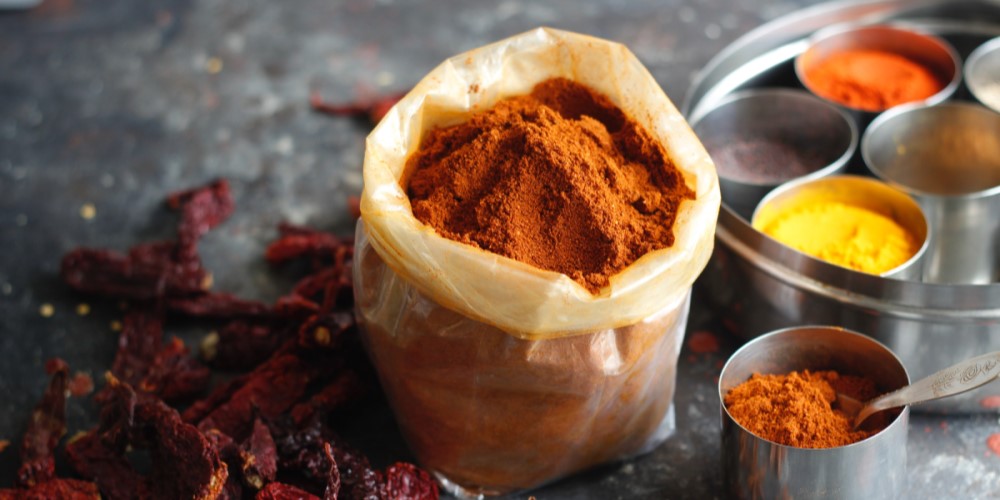You may already know turmeric for its scientifically proven ability to support joint and muscle health and inflammatory response in the human body. But, get this - did you know turmeric curcumin supplements might also have the ability to support cognitive health? It’s true!
Recent studies have unearthed exciting new research on turmeric health benefits for the human brain. And we’ve already done the hard part for you - below you’ll find out more about why turmeric curcumin supplements are the way to go to not only support your overall wellness, but potentially your brain, too.

Anti-Inflammatory Powerhouse
Oxidative stress is a common concern for a variety of reasons. This issue is defined as an imbalance between free radicals and antioxidants in the body. Nerve cells in the brain can be damaged by oxidative stress, which could also potentially lead to neurodegenerative problems in the brain [1].
Turmeric curcumin, according to recent studies, has anti-inflammatory properties that have been suggested to speed up inflammatory response, fight oxidative stress and free radicals, and possibly even lower the risk of brain health issues from aging [2].

Anti-Amyloid King
Amyloids aren’t friendly. These guys are little proteins that have the potential to stick to the inner walls of the arteries in your brain, turning into amyloid-beta plaques. This potential build-up can have lots of negative effects, like a foggy brain, and memory lapses, among other health concerns.
In some studies, curcumin—the main compound found in the turmeric herb—has been found to break down this build-up of amyloid-beta plaques [3]. That means healthier brain function for a healthier and happier you!

Antioxidant Go-Getter
The brain naturally has a weak antioxidant capacity. This makes the brain vulnerable to oxidative harm from free radicals [4].
Antioxidants, as defined by Medical News Today, “are substances that can prevent or slow damage to cells caused by free radicals, unstable molecules that the body produces as a reaction to environmental and other pressures [5].”
Experts say that turmeric is a potent source of antioxidants, which can help to fight against oxidative stress in brain cells, and that curcumin has the ability to increase the body’s production of antioxidant enzymes. Plus, studies suggest that curcumin can help to prevent the deterioration of neurons in the brains of those struggling with age-related cognitive health concerns [6,7].

Brain Cell Protector
Your brain is vulnerable to a lot of things, and one of those pesky things is brain cell damage. Over time, brain cell damage can lead to potential cognitive decline.
Some studies have suggested that another compound in turmeric, known as turmerone, might have the ability to stimulate new growth in the brain. These same studies have also implicated that turmerone may be able to increase the brain’s ability to repair itself and perform recovery functions [8].

Metal Head
What is metal toxicity? It’s overexposure to heavy metals that have the potential to cause neuron damage, cognitive decline, and possible neurodegenerative issues. Heavy metals can include metals like lead or cadmium [9].
Curcumin may have the ability to help fight neurotoxicity caused by heavy metal overexposure. It’s science! It has been reported that curcumin in turmeric may be able to suppress the inflammatory neuron damage from heavy metals and even protect the brain from further damage [10]. 
Where Can I Find Turmeric Curcumin to Boost my Brain?

Interested in trying out some turmeric curcumin to protect brain function? Look no further. We’ve got you covered.
Try our Pattern Wellness Turmeric Curcumin supplement. Not only are our vegan capsules super easy and convenient to take on the daily, but our 1300mg formula is made with high-potency 95% Standardized Curcuminoids, and enhanced with BioPerine Black Pepper Extract for more efficient bodily absorption. Our formula is simple too - this turmeric supplement is dairy-free, non-GMO, gluten-free, soy-free, and preservative-free.
Go ahead, give your brain a boost!
Resources:
- Dix, M. (2018, September 29). Oxidative stress: Definition, effects on the body, and prevention. Healthline. Retrieved from https://www.healthline.com/health/oxidative-stress
- Giri, R. K., Rajagopal, V., & Kalra, V. K. (2004). Curcumin, the active constituent of turmeric, inhibits amyloid peptide-induced cytochemokine gene expression and CCR5-mediated chemotaxis of THP-1 monocytes by modulating early growth response-1 transcription factor. Journal of neurochemistry, 91(5), 1199–1210. https://doi.org/10.1111/j.1471-4159.2004.02800.x
- Zhang, L., Fiala, M., Cashman, J., Sayre, J., Espinosa, A., Mahanian, M., Zaghi, J., Badmaev, V., Graves, M. C., Bernard, G., & Rosenthal, M. (2006). Curcuminoids enhance amyloid-beta uptake by macrophages of Alzheimer's disease patients. Journal of Alzheimer's disease: JAD, 10(1), 1–7. https://doi.org/10.3233/jad-2006-10101
- Lee, K. H., Cha, M., & Lee, B. H. (2020). Neuroprotective Effect of Antioxidants in the Brain. International journal of molecular sciences, 21(19), 7152. https://doi.org/10.3390/ijms21197152
- Ware, RDN, L.D., M. (2018, May 29). Antioxidants: Health benefits and nutritional information. Medical News Today. Retrieved from https://www.medicalnewstoday.com/articles/301506#_noHeaderPrefixedContent
- Agarwal, R., Goel, S.K. and Behari, J.R. (2010), Detoxification and antioxidant effects of curcumin in rats experimentally exposed to mercury. J. Appl. Toxicol., 30: 457-468. https://doi.org/10.1002/jat.1517
- Christiansen, S. (2018, March 30). How do antioxidants lend themselves to Brain Health? Alzheimers.net. Retrieved from https://www.alzheimers.net/antioxidants-lend-themselves-to-brain-health
- Bhatia, N., Jaggi, A. S., Singh, N., Anand, P., & Dhawan, R. (2011). Adaptogenic potential of curcumin in experimental chronic stress and chronic unpredictable stress-induced memory deficits and alterations in functional homeostasis. Journal of natural medicines, 65(3-4), 532–543. https://doi.org/10.1007/s11418-011-0535-9
- Gilani, S. R., Zaidi, S. R., Batool, M., Bhatti, A. A., Durrani, A. I., & Mahmood, Z. (2015). Report: Central nervous system (CNS) toxicity caused by metal poisoning: Brain as a target organ. Pakistan Journal of pharmaceutical sciences, 28(4), 1417–1423.
- Daniel, S., Limson, J. L., Dairam, A., Watkins, G. M., & Daya, S. (2004). Through metal binding, curcumin protects against lead- and cadmium-induced lipid peroxidation in rat brain homogenates and against lead-induced tissue damage in rat brain. Journal of inorganic biochemistry, 98(2), 266–275. https://doi.org/10.1016/j.jinorgbio.2003.10.014

Comments (0)